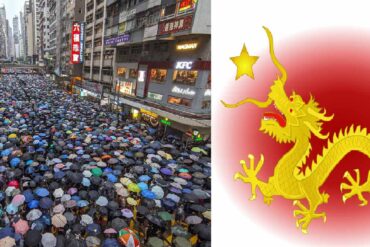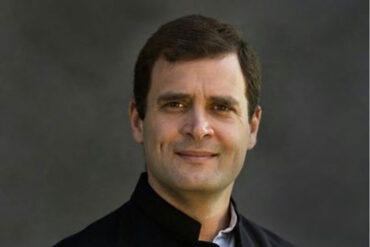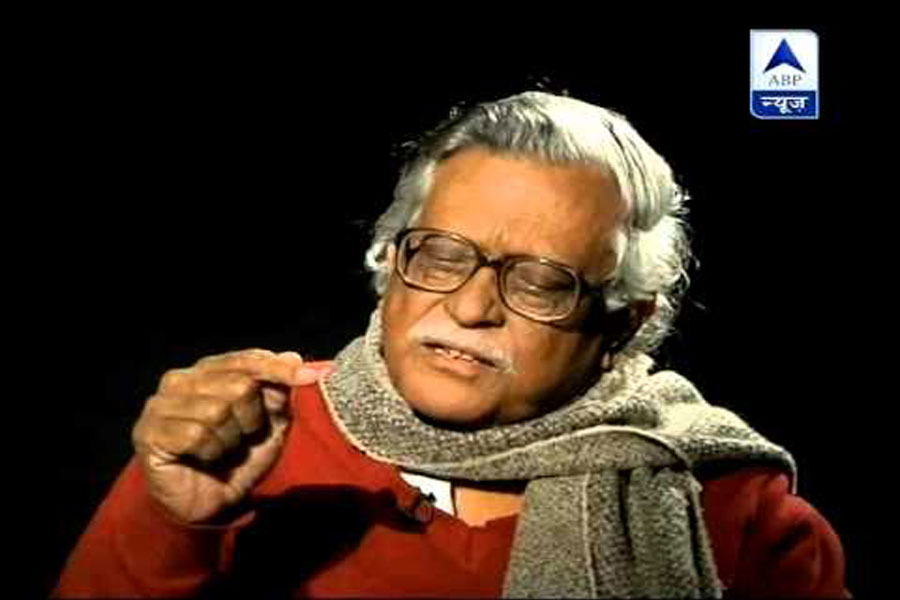The passing away of Gurudas Dasgupta, the veteran Communist Party of India (CPI) Member of Parliament for nearly three decades and one of the tallest leaders of the trade union movement in the country, signals the end of an era in Bengal. Curtain has fallen on an age when student movements gave birth to future leaders who took up struggles for the common people as the vocation of their entire lives, their professional and political careers blended into one heady mix of mass movements that they led from the front.
At a time when the economy is going south and the workers’ jobs and livelihoods are under unprecedented attack, Dasgupta’s death is a big loss to both the Left and the trade union movements as a whole. This former CPI Deputy General Secretary, renowned parliamentarian and veteran trade union leader not only headed All India Trade Union Congress (AITUC) in various capacities, but also oversaw its immense transformation into a national-level organization at the forefront of all major labour movements, calibrating workers’ demands for justice and labour reforms in tune with the changing times.
I first met Gurudas, then a firebrand leader of the AISF, in the late fifties, as a student activist. Both in Calcutta and in Delhi during my active reporting days, the CPI leader was a major source of information on the trade union struggles and the financial improprieties being resorted to by business houses. He used to do research himself and that was how he was able to expose in Parliament many of the patently illegal activities of corporates. Dasgupta was friendly to the press—a very different beast in those days with no 24X7 TV news and no social media, just an array of newspapers with dedicated editorial desks—and he himself used to write commentaries on economic issues in the Kolkata-based English-language daily, The Statesman.
Dasgupta was a post-graduate in Commerce from Calcutta University and joined politics from student days. He was the President of Undivided Bengal Provincial Students` Federation, 1958-60, General Secretary of Asutosh College Students` Union, 1957; West Bengal Committee of All India Youth Federation, 1967-77 and West Bengal Youth Festival Preparatory Committee, 1968, 1970 and 1973.
Dasgupta had a long stint as a committed parliamentarian. He got elected as a member of the national council of the CPI in 1986 and rose to the level of deputy general secretary of the party in 2015 at the Puducherry Party Congress. He got elected to the Rajya Sabha for the first time in 1985 and got re-elected in 1988. Again in 1994 he was re-elected for the Rajya Sabha, securing a third term. In 2004, he was elected to the Lok Sabha and then re-elected to the lower house in 2009.
Dasgupta’s first stint in Rajya Sabha came when he was elected to the Upper House in 1985 to fill in the vacancy caused by the demise of famous leader of coal miner workers, Kalyan Sankar Roy. Dasgupta was appointed the chairman, Consultative Committee, Ministry of Labour on the Conditions of Agricultural Workers in 1985, which produced several important observations of the plight of the farmers, making an important link between the organised trade union culture of industrial workers, compared to the relatively disorganized, caste-ridden condition of the poor farmers and land tillers.
Dasgupta was particularly critical of the politician-corporate nexus that was chipping away the robust institutions in banking, finance, coal and power, and other important sectors. A good party worker, he not only fought for the economic rights and social dignity of both industrial and agrarian workers, but walked among the people as one of them, attending to both Parliament and trade union agitations with equal dedication. One of the highpoints of his professional political career as a much-revered MP came when he submitted a separate report as a note of dissent as a member of Joint Parliamentary Committee on the Securities Scam (known as Harshad Mehta scam) in 1992.
Also noteworthy was Dasgupta’s principled battle in Parliament against the patently crony capitalist awarding of the Krishna-Godavari hydrocarbon basin to the Mukesh Ambani-owned Reliance Industries Limited and unfair pricing advantages that it gave to the mammoth corporation. Dasgupta also achieved an important objective when he successfully blocked the undue giving away of a block of Bailadila Iron Ore Mine. It is this untrammelled commitment to labour and people’s rights over public resources that set Dasgupta apart from most of his cohorts in other parties.
Dasgupta was associated with AITUC in various capacities and rose to become its general secretary in 2001 and continued till December 2017. It was under his stewardship that AITUC became a national organization with pan-India membership. He was also the vice-president of Bhartiya Khet Mazdoor Union. During his 17-year tenure as the general secretary of AITUC, he played a major role in uniting the various trade unions in favour of the urgent demands of the workers and was a pillar of strength to the trade unions in banking, insurance and oil industry.
It was on Dasgupta’s initiative (then a first time MP in the Rajya Sabha) that the 125th birth anniversary celebrations commemorating Rabindranath Tagore was observed in Parliament in 1986, his Bengali roots making itself felt strongly at the national level. Dasgupta lived simply, surrounding himself with the best of literature in Bengali and English, the arts, music and progressive theatre.
Though just a coincidence, the working class veteran passed away on the day when the workers all over India are marking the 100th year of the foundation of AITUC, which he headed for 17 years. A political mentor to many, including this writer’s, this rare gem of a human being will be remembered fondly for a long, long time.







